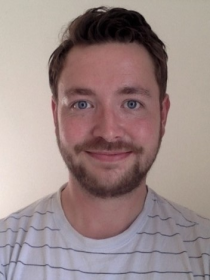dr. E. (Erik) Meij, PhD

‘Everyday experiences of socio-spatial inequality’ is a PhD research project based on three case-studies in different contexts aiming to grasp a better understanding of the everyday social processes that underlie socio-spatial inequality.
The first case-study takes place in a disadvantaged neighborhood in the city of Groningen, The Netherlands. The second case-study has a rural setting; a town in the rural region of East Groningen, The Netherlands. The third and final case-study will take place in the city of Calgary, Canada. Each case-study follows an ethnographic and participatory research approach to portray the everyday experiences and perceptions of the people under study.
The Groningen case-study takes place in a disadvantaged neighborhood in the city of Groningen (NL). The neighborhood in question was targeted by a social mixing intervention in which vacant dwellings in the area were appropriated exclusively to renters with a steady income and a clean criminal record in order to improve neighborhood livability and to provide vulnerable groups with opportunities of upward social mobility. Patterns of social exclusion between simplified groups of newcomers and long-term renters are analyzed through a lens of everyday neighborhood rhythms. The findings illustrate why the socially mixed hardly mingle and how -- as a result of the social-mixing intervention – experiences of exclusion between newcomers and long-term renters are reinforced and in some cases are exacerbated, rather than mitigated.
The second case-study zooms in on the social networks and class practices of the rural poor. Based on a year’s worth of participant observations and 22 interviews capturing participant's social life histories this study sheds light on the particular ways in which social networks and class practices play a role in enduring and intergenerational poverty in the context of a Dutch rural town.
For a third and comparative perspective on Western-European and North-American manifestations of socio-spatial inequality, the final case-study takes place in the city of Calgary (CA). Fieldwork is scheduled from August 2019 to January 2020. Although the fossil fuel industry has made the city grow and brought it much wealth, economic growth in Calgary has certainly not been linear. Dependent on global oil prices, Calgary’s economy follows turbulent boom bust cycles. In times of booming oil prices the city experiences tremendous increases in capital investment, construction, wages and immigration. Simultaneously, boom cycles typically also bring along rising housing and living costs, increasing polarization and growing social and economic inequalities. Although the definitive aims and focus of this case-study will be determined in situ, the Calgary study will be conducted in similar vein as the first two case-studies by zooming in on everyday social processes underlying socio-spatial inequality.
